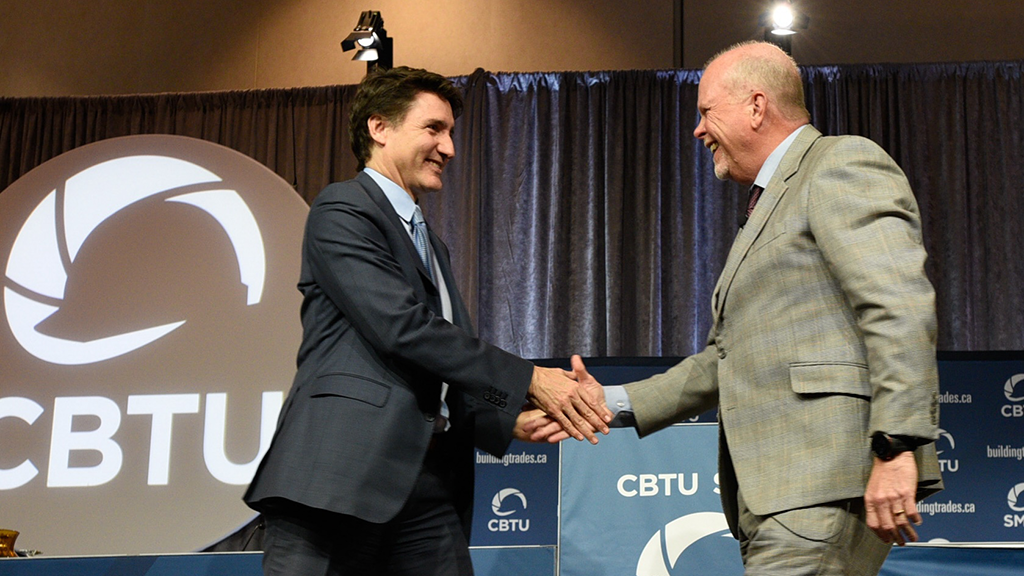National construction stakeholders say they’re concerned about Canada’s new leadership “vacuum” following Prime Minister Justin Trudeau’s recent resignation announcement but are suggesting perspective and strategic responses are called for as the country prepares to address the installation of the protectionist Donald Trump regime south of the border.
On Jan. 6 Trudeau announced he was stepping down as Liberal leader and that Gov. Gen. Mary Simon had agreed to prorogue parliament until March 24.
The Liberal Party is deciding on new rules to replace him and by March 26 the party is expected to have a new leader — and the country a new prime minister — as Parliament reconvenes to vote on supply measures and hear a new speech from the throne.
A subsequent non-confidence vote would send the country into an election campaign.
Mancinelli ‘disappointed’
“To say I am disappointed would be an understatement,” tweeted Joe Mancinelli, Canadian director of . “Our members show up day in and day out to build and strengthen our country and it is time our government did the same. No time for ego. Strong leadership is needed now more than ever.”
Trump will be sworn in to his second term as U.S. president on Jan. 20. Since the November election he has repeatedly threatened to impose 25-per-cent tariffs on imports from Canada and has escalated musings on making Canada a 51st state, including promising to use “economic force” to coerce Canadians to accept the proposition.
president Rodrigue Gilbert referred to Trudeau’s continuing decline in the polls over the last year, leaving him over 20 points behind Conservative Leader Pierre Poilievre in popularity.
“We’ve been in kind of a leadership vacuum for the last year,” Gilbert said. “We just don’t feel we have the leadership in place to face these threats. It needs to be settled sooner rather than later.
“If president Trump imposed these 25-per-cent tariffs, the impact of the industry will be huge.”
Gilbert said the machinery of government will still work and Canada has an effective public service. But no major decisions will be taken as Canada continues to face a housing crisis and no new infrastructure initiatives will be launched, he said.
The government’s whole legislative agenda will be wiped out, Gilbert noted, including approval of a new capital gains tax.
‘Uncertainty creates problems’
“Uncertainty creates problems for the industry,” he said. “We’re navigating in the dark.”
Both Gilbert and COO Ken Lancastle made the point that the construction sector has been preparing for a 2025 election for some time and so at least Trudeau’s decision to step down appears to clarify the timeline of an anticipated change of government.
“It’s not something that has necessarily caught us off guard in the sense that we already knew that there was going to be uncertainly in Q1, Q2, a year of uncertainty for the North American economy, for the Canadian economy,” said Lancastle.
He believes construction associations should not overreact to threats that have mainly been issued through social media. There will be significant discussions by business advocates on both sides of the border in recognition that the North American economy is closely integrated, Lancastle said.
The need for strong transportation and energy infrastructure and integrated supply chains are fundamental North American issues, advocates will argue.
“If we do start to see significant penalties impacting some sectors, there’s a downstream effect to that on other sectors on both sides of the border,” said Lancastle.
s executive director Sean Strickland refused to condemn the timing of the resignation, saying, “Politicians are human like the rest of us, and they make mistakes the same way we do.”
As for upcoming economic discussions between Canada and the U.S., he said, “We have to recognize that we have a lot of cards to play.”
There is significant reliance in the U.S. on Canadian oil and gas exports and other resources, he pointed out: “It’s just completely unrealistic — they’re going to put a 25-per-cent tariff on Canadian oil and gas, it’s just going to increase inflation. That’s going to drive up the cost of the American consumer, that’s going to decrease the president’s popularity and all he wants to be is a popular president.
“There’s some things we need to get more granular on.”
The issued a statement thanking Trudeau for his public service and said his decision is in “the best interests of Canadians.”
“As Canada heads into critical, complex discussions with the U.S. around potential tariffs, it is imperative that these discussions are led by someone that has the confidence of Canadians,” stated PCA director of government relations Jason Tucker.











Recent Comments
comments for this post are closed